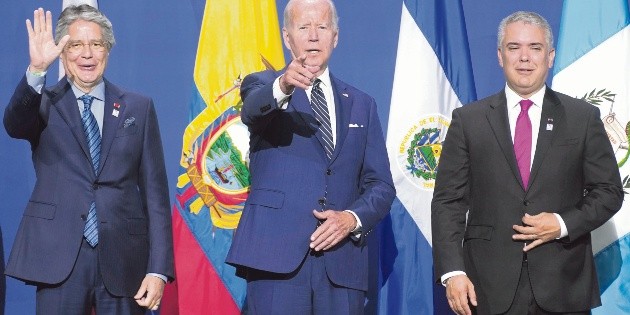The president of United States, Joe Biden, and other Western Hemisphere leaders presented a roadmap for countries receiving large numbers of migrants and refugees.
The “Los Angeles Declaration” is perhaps the greatest achievement of the Summit of the Americas, which has been hit by the differences aroused by the list of leaders invited by Biden. The delegations from Mexico and several Central American nations were headed by their main diplomatic representatives after the refusal of their leaders to participate in an event from which they were excluded Cuba, Nicaragua and Venezuela.
Among the principles that announced on the last day of the Summit include legal pathways to enter countries, aid to communities most affected by migration, humane border management, and coordinated emergency responses according to a senior US official who briefed reporters ahead of the official announcement.
“Each of us is signing commitments that recognize the challenges we all share,” Biden said at a podium with the flags of the 20 countries that sealed the agreement from Chile, in the south of the continent, to Canada, in the north.
“This is just a start,” Biden said, expressing the hope that more nations will join. “There’s a lot more work left.”
The White House highlighted recently announced measures and some new commitments: Costa Rica will extend protections for Cubans, Nicaraguans and Venezuelans who arrived in its territory before March 2020. Mexico will add temporary worker visas for up to 20,000 Guatemalans a year.
The United States is committing $314 million to help countries hosting refugees and migrants and is resuming or expanding efforts to reunite Haitian and Cuban families. Meanwhile, Belize will regularize Central American and Caribbean migrants.

